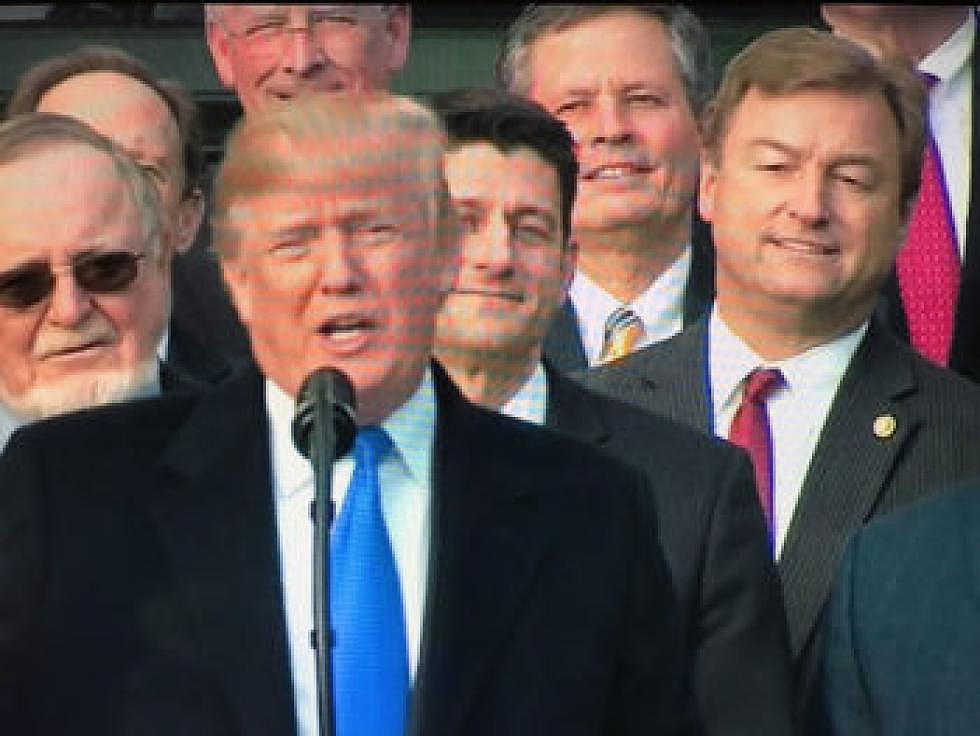
Montana Democrats warn GOP tax reform will cause further cuts to state programs
While Republicans in Washington, D.C., celebrated passage of their tax reform plan, Democrats back in Montana warned that it could have devastating impacts on the state budget.
What's more, they said, any cuts made in Helena would likely trickle down to the county level, resulting in an increase in property taxes.
Outnumbered in both Washington and Helena, Montana Democrats on Thursday expressed frustration over the federal tax plan and a state budget that saw $196 million in cuts during the 2017 Legislature, followed by an additional $76 million during November's special session.
If revenues continue to decline due to the new tax plan, Democrats said, it could lead to further cuts down the road as the state struggles to keep a balanced budget.
“When 55 percent of your revenue for the state is generated through personal income tax, that's a lot of eggs to be putting into one basket, and any deviation can have devastating effects,” said Rep. Tom Jacobson, D-Great Falls. “As we continue to cut funding for county-level projects and schools, the only option counties have is property taxes. When there's a cut in Helena, there's an increase somewhere else.”
The tax package Congress sent to President Trump will cut government revenues by $135 billion in 2018, rising to $280 billion in 2019, according to the Joint Committee on Taxation. The tax reform measure is projected to increase the debt by $1.5 trillion over 10 years.
But Montana Democrats don't expect the GOP will allow the deficit to soar. What they do expect is that Republicans will attempt to cut services and social safety programs to save money.
“I don't believe the Republicans are going to allow the deficit to increase,” said Rep. Marilyn Ryan, D-Missoula. “The military is expecting an increase, not a decrease, so when you look at the federal budget, the next place to look is social programs like Social Security, Medicare and Medicaid.”
None of the Democrats on Thursday's conference call had the latest projected impacts on the state budget as a result of the federal tax reform measure. But an earlier analysis suggested the Senate version of the tax bill would cost the state roughly $122 million per year.
And while proponents of tax reform contend it will put more money in the pockets of working Americans, critics of the plan believe it will benefit the wealthy while leaving working families with less.
That could be amplified if Montana is forced to make continued cuts to essential programs.
“Sen. (Steve) Daines and Rep. (Greg) Gianforte voted for a bill they couldn't possibly understand the effects of at home in our communities,” said Rep. Kim Abbott, D-Helena. “We know this will have an effect on our bottom line. I wish they would have waited for that analysis before they voted on the bill.”
Cuts to basic services in Montana already include $1.6 million to housing services for at-risk teen mothers, and $17 million for targeted case management for those with mental health issues.
Nearly $11 million in cuts were made to senior long-term care, and 19 rural public assistance offices have been closed. Montana Democrats predict other cuts are likely to come as Republican-crafted tax and budgeting scenarios unfold.
“We need to make sure basic services are covered, our kids are educated in good schools, our roads are paved and our police and fire are paid,” said Jacobson. “We can't do that through cutting. If your ideology is solely to cut, we're not going to solve the long-term problems.”
The Montana Department of Revenue is working on an analysis of how the tax plan will impact the state budget. House Minority Leader Jenny Eck, D-Helena, doesn't expect it to look good.
“We're seeing a 500-page bill that's been rammed through very quickly, and we're doing our best to keep up with what the implications could be for Montana,” said Eck. “We know the cost of this will largely be carried by working families in the state.”
